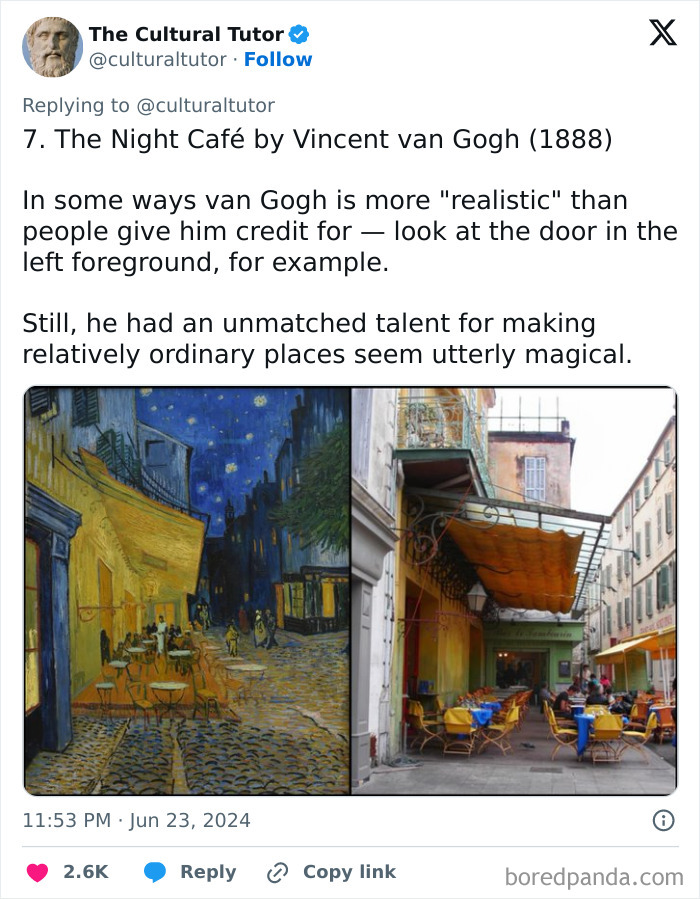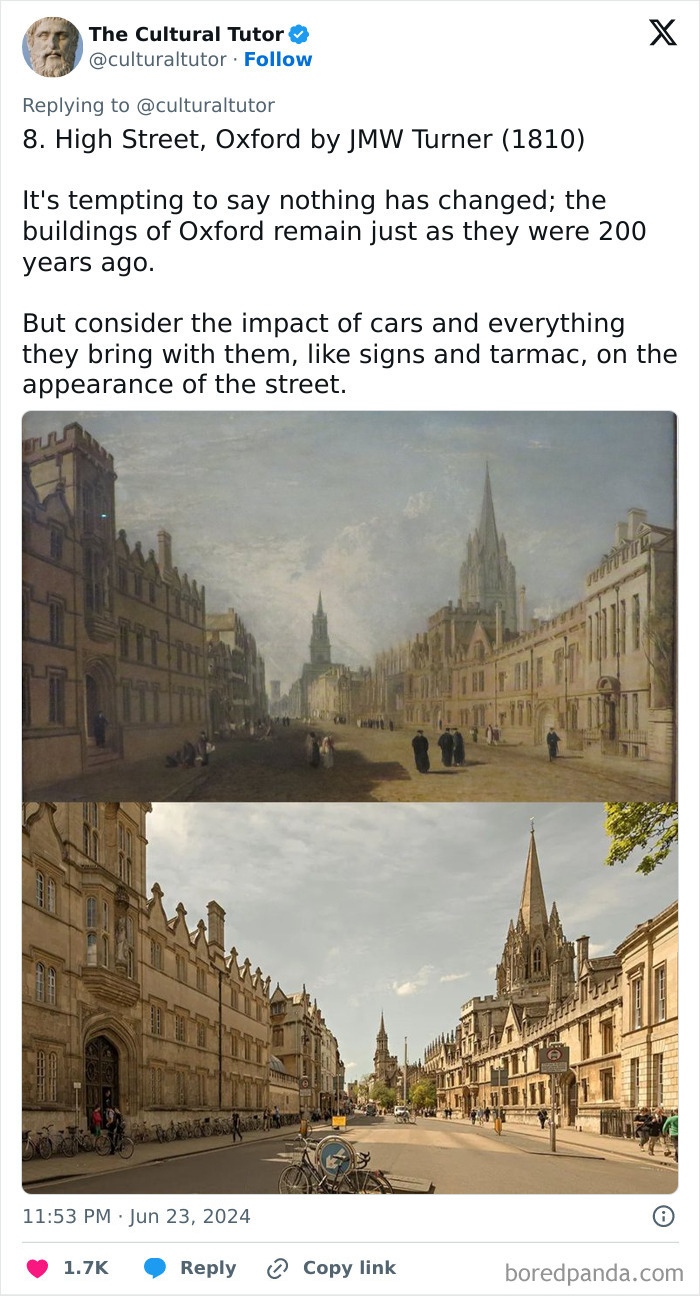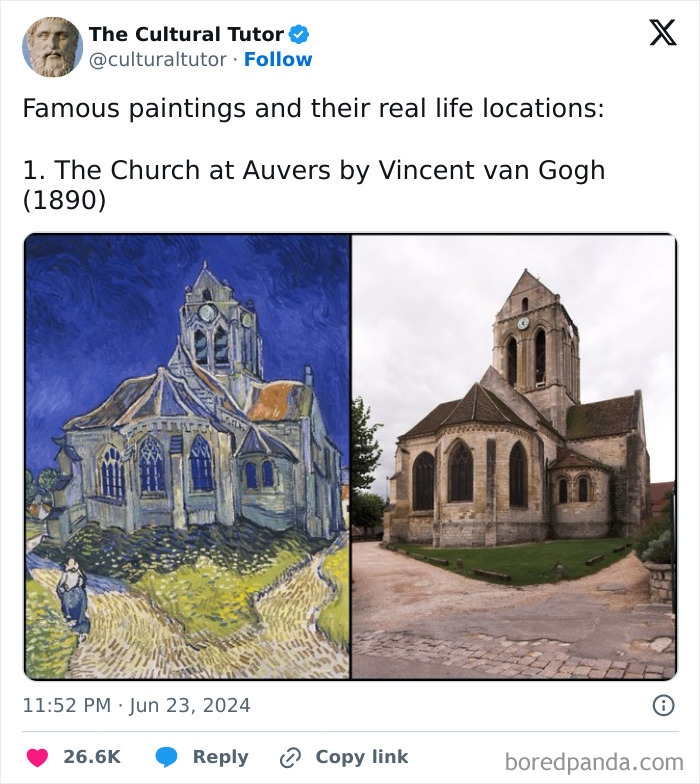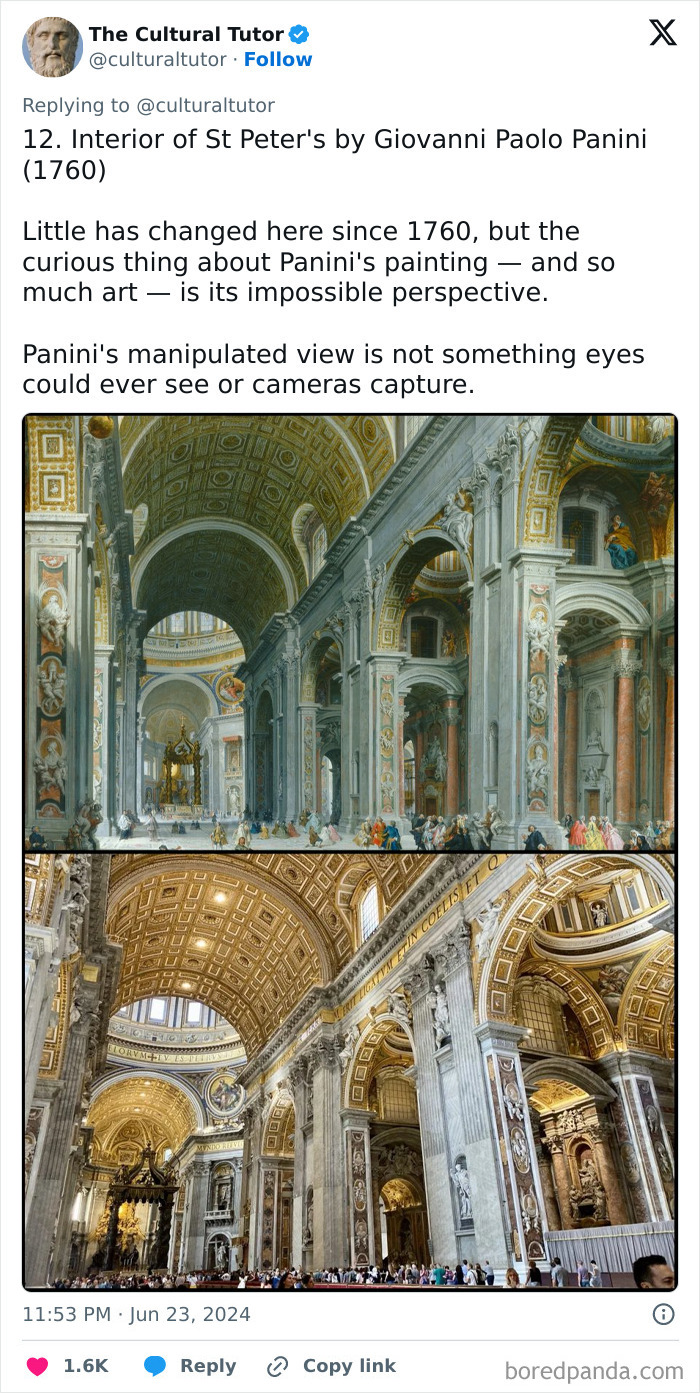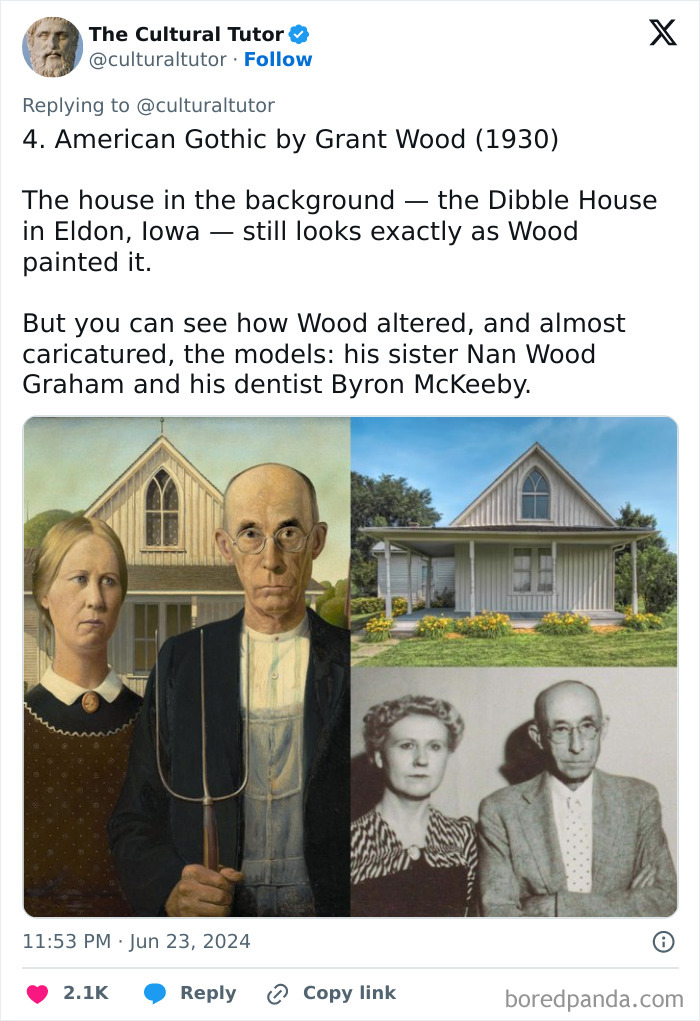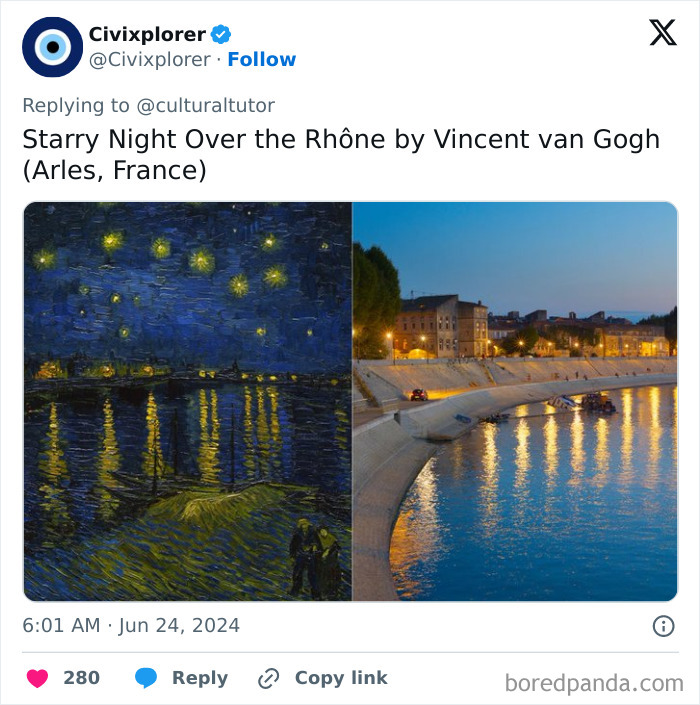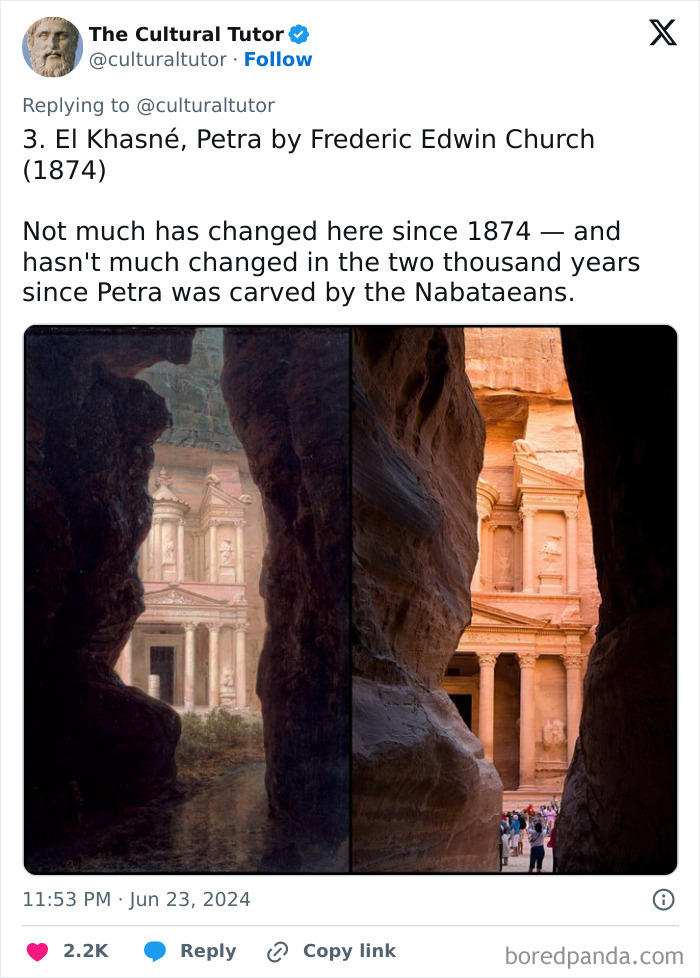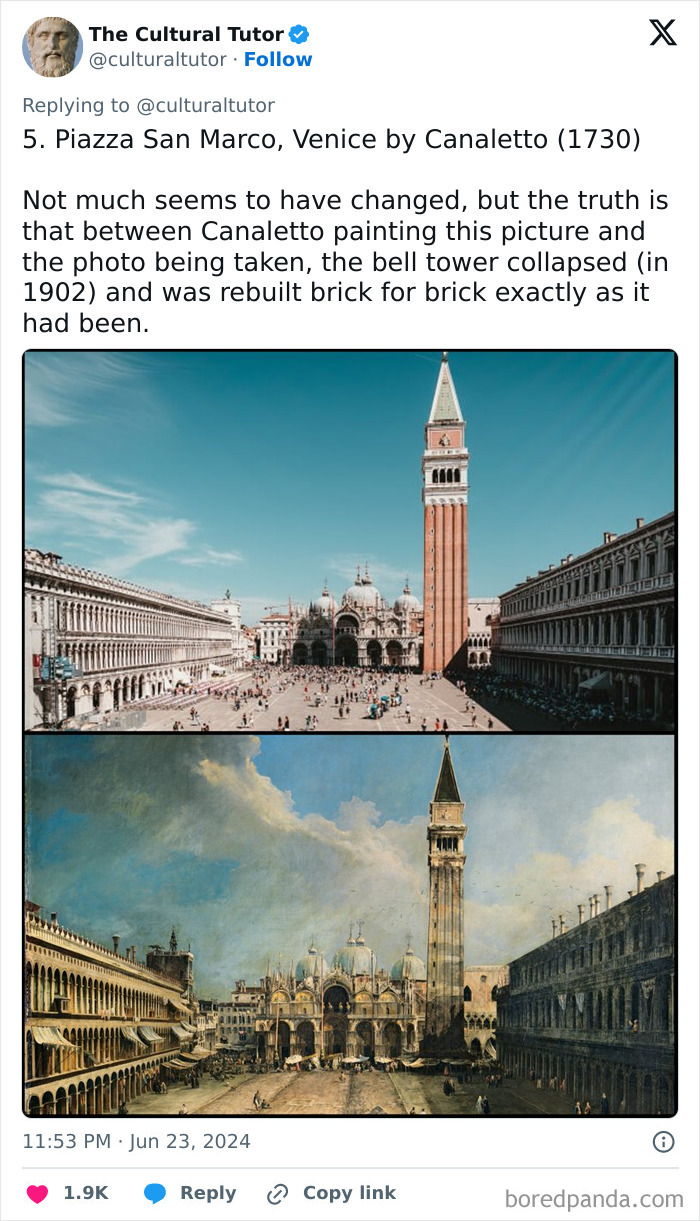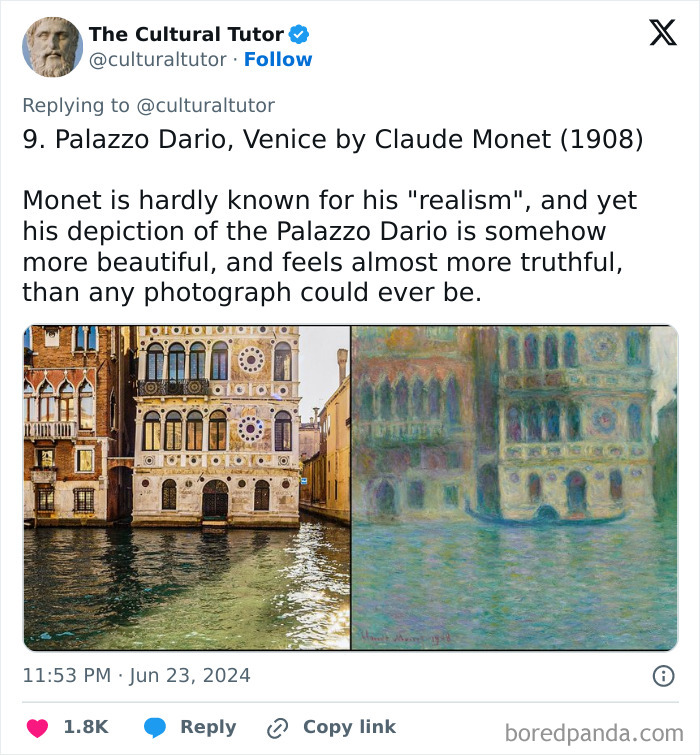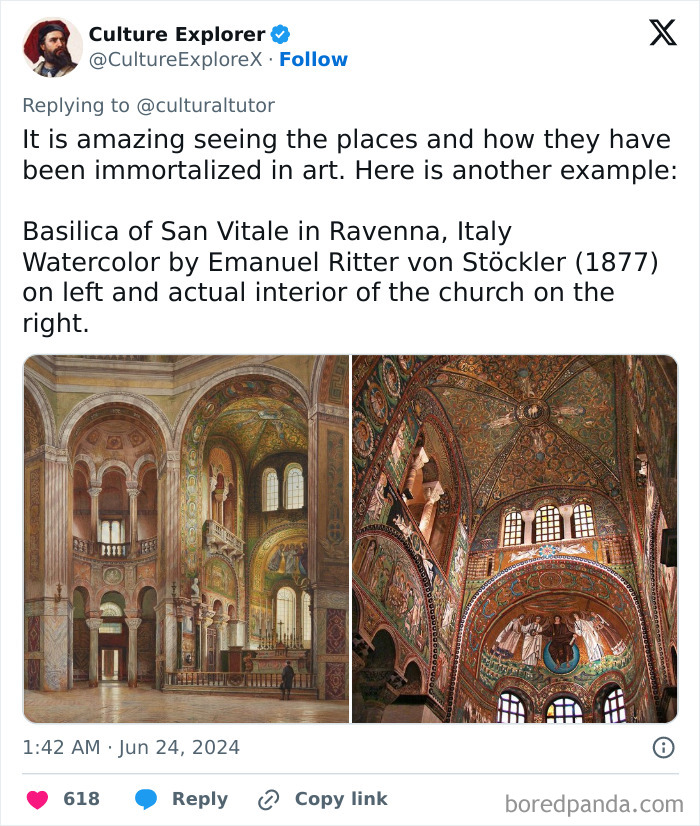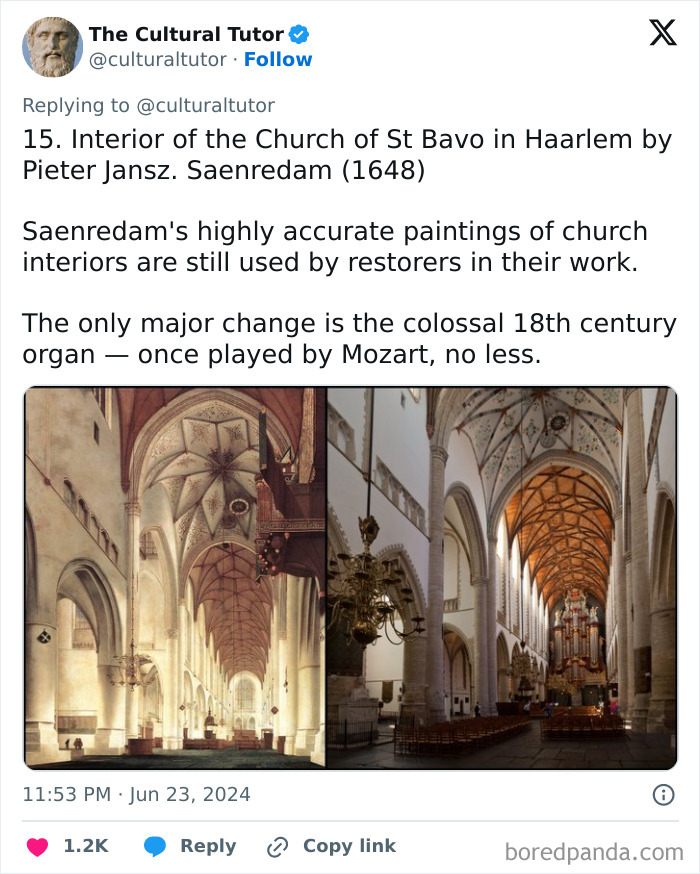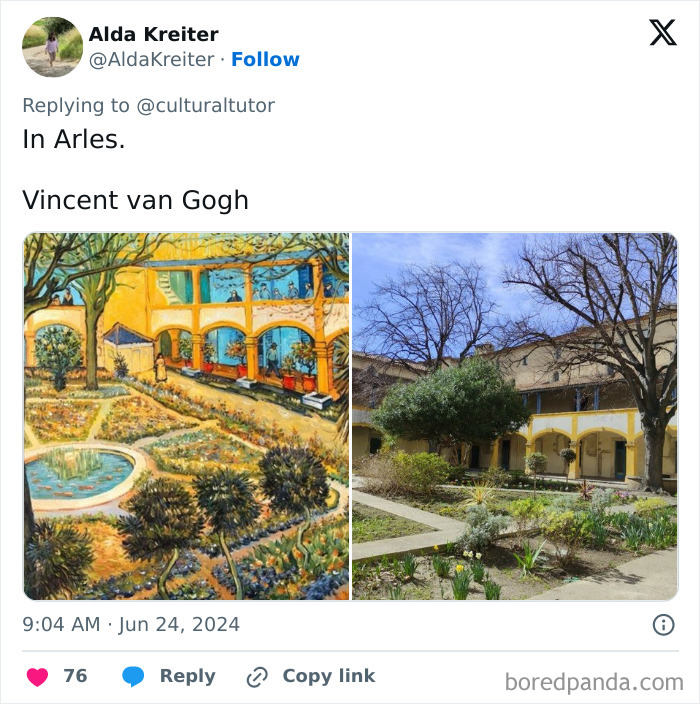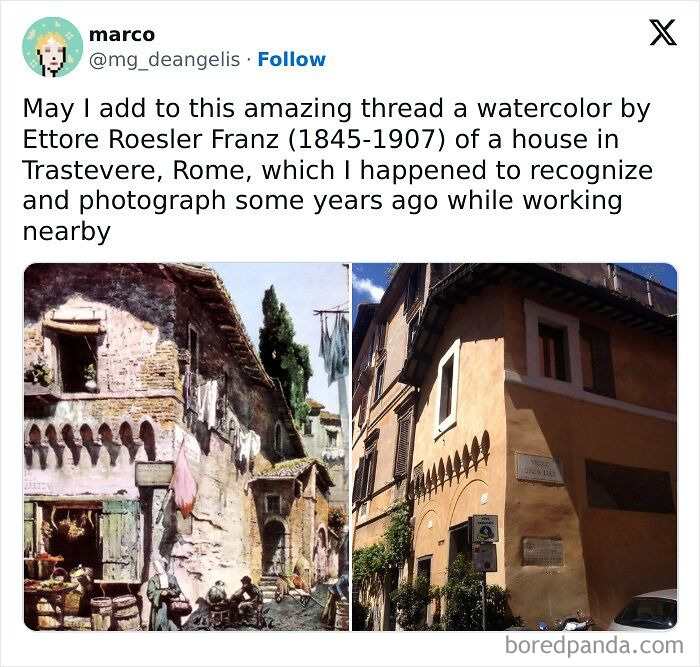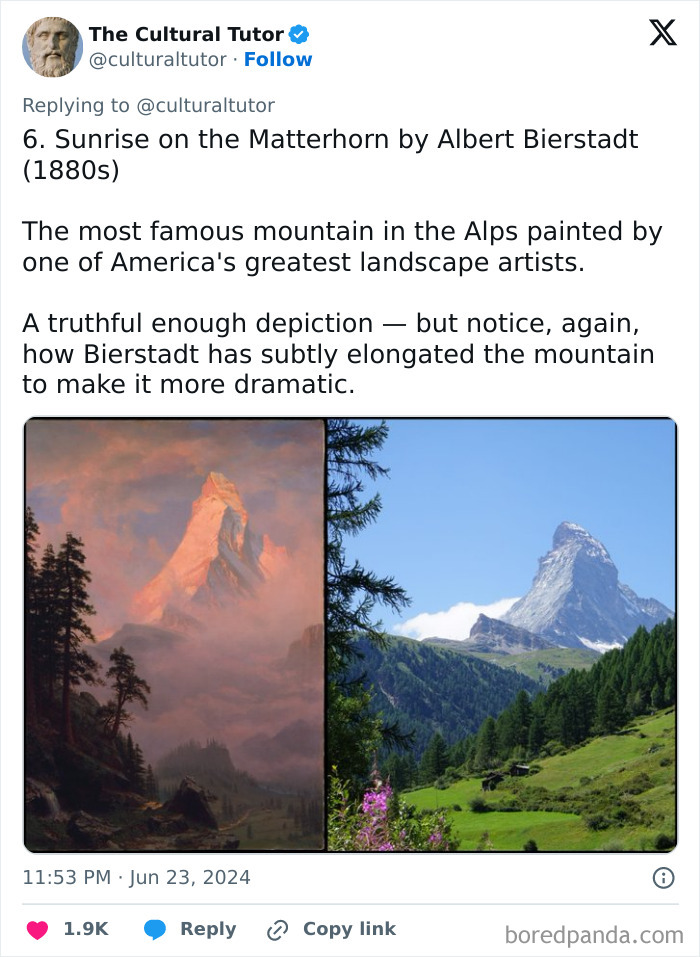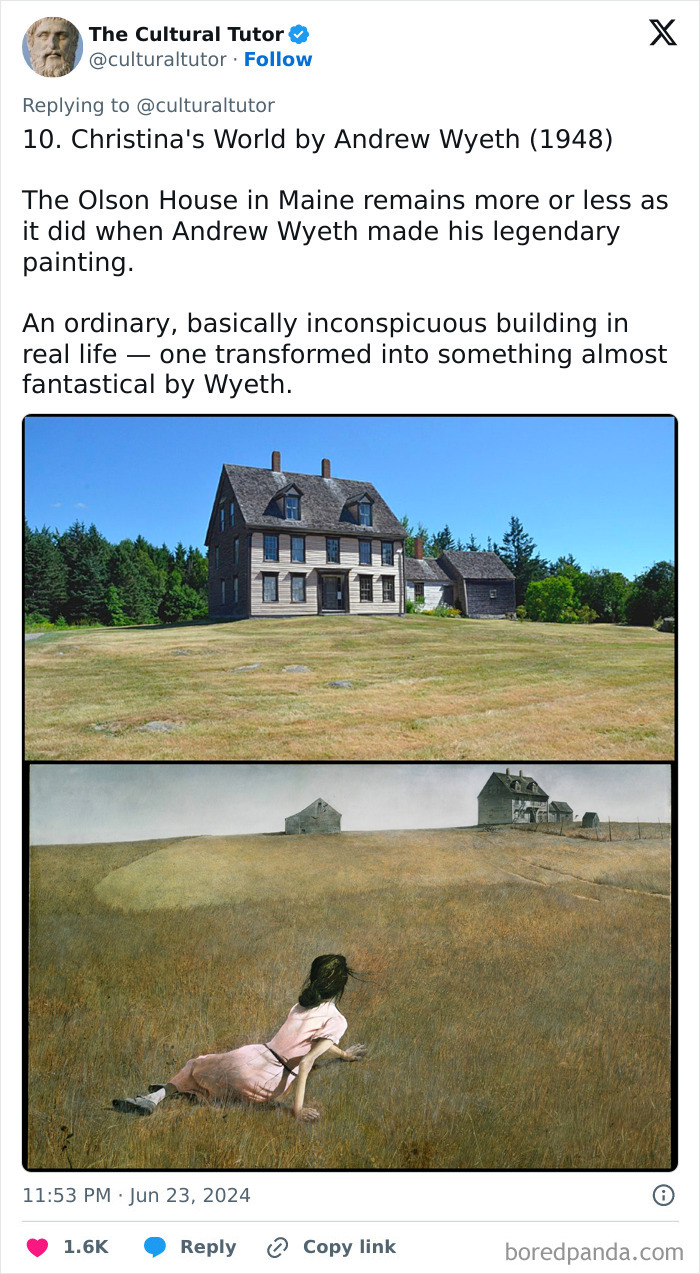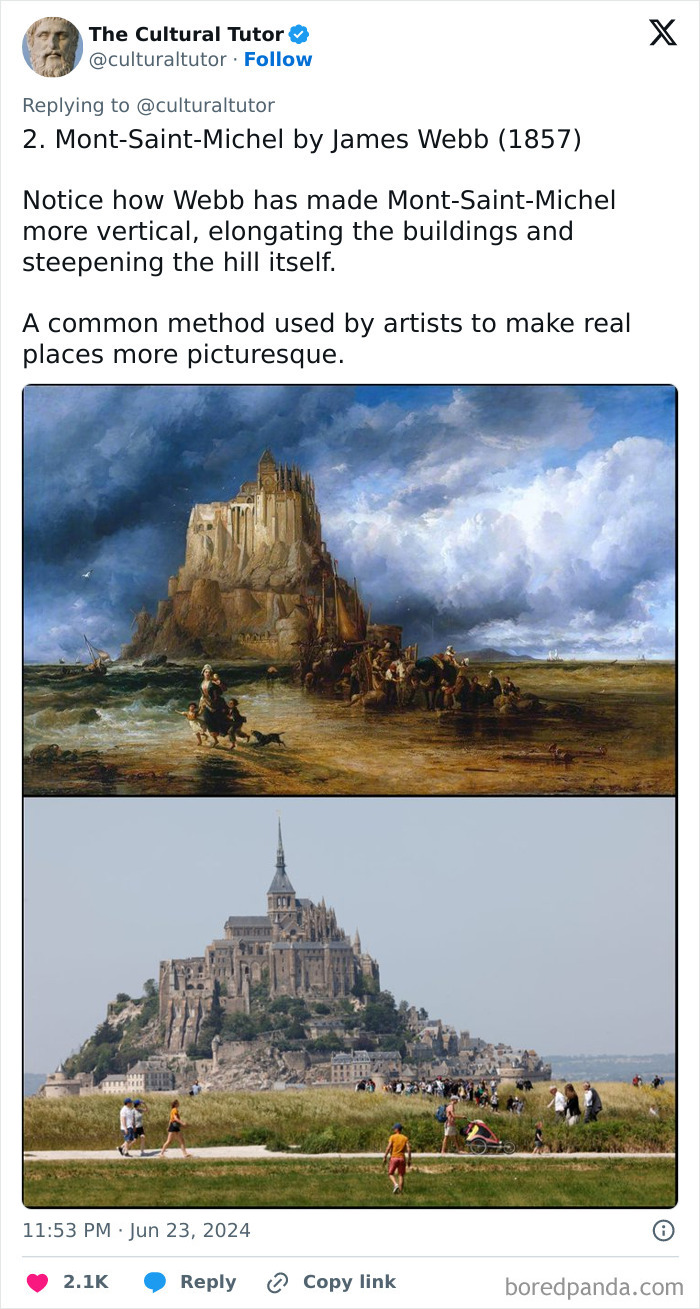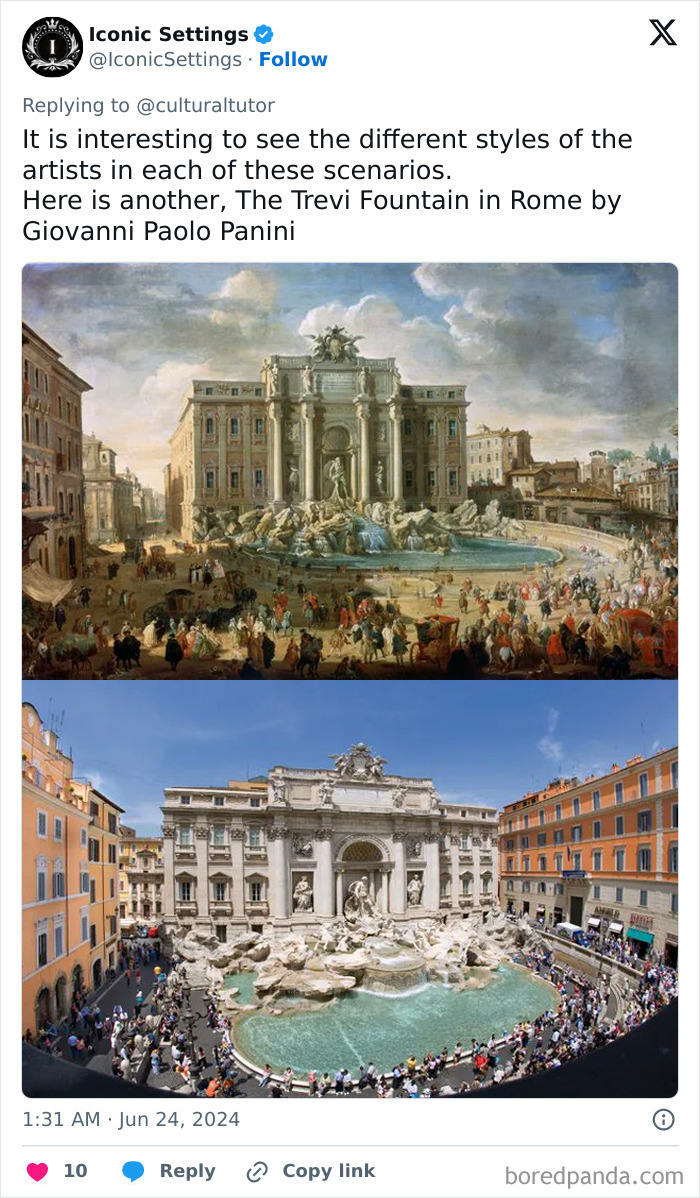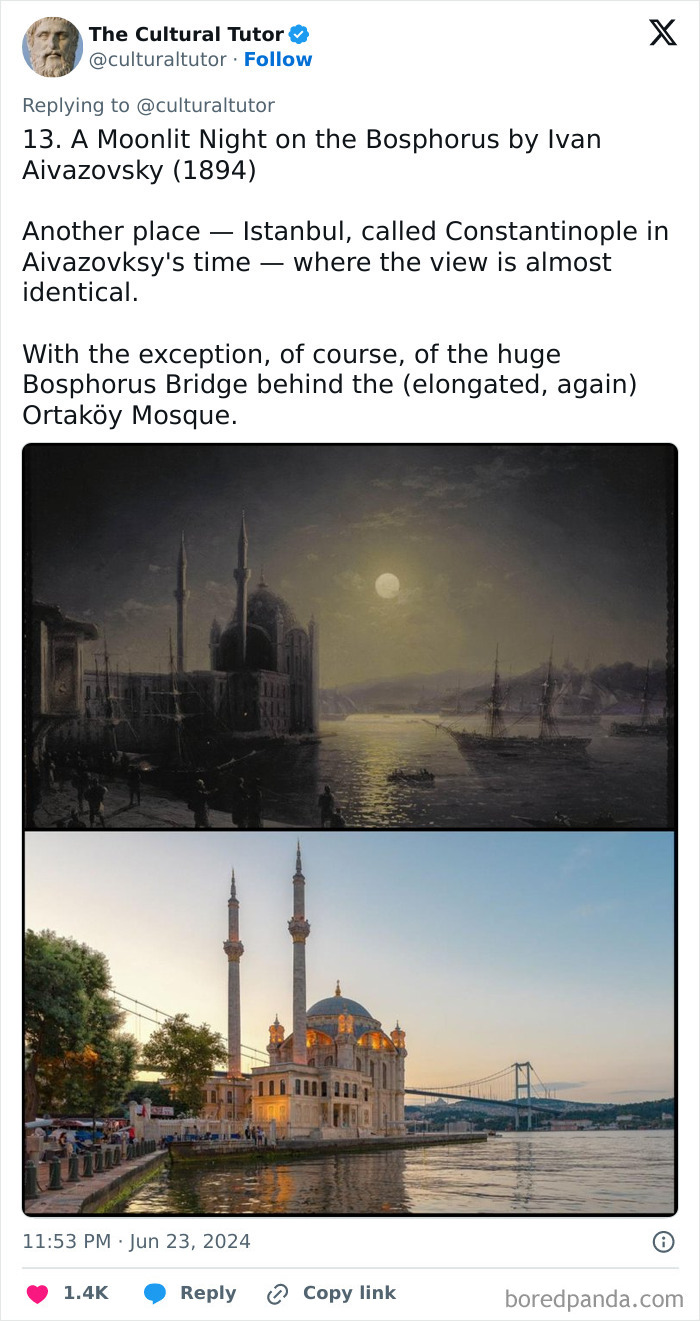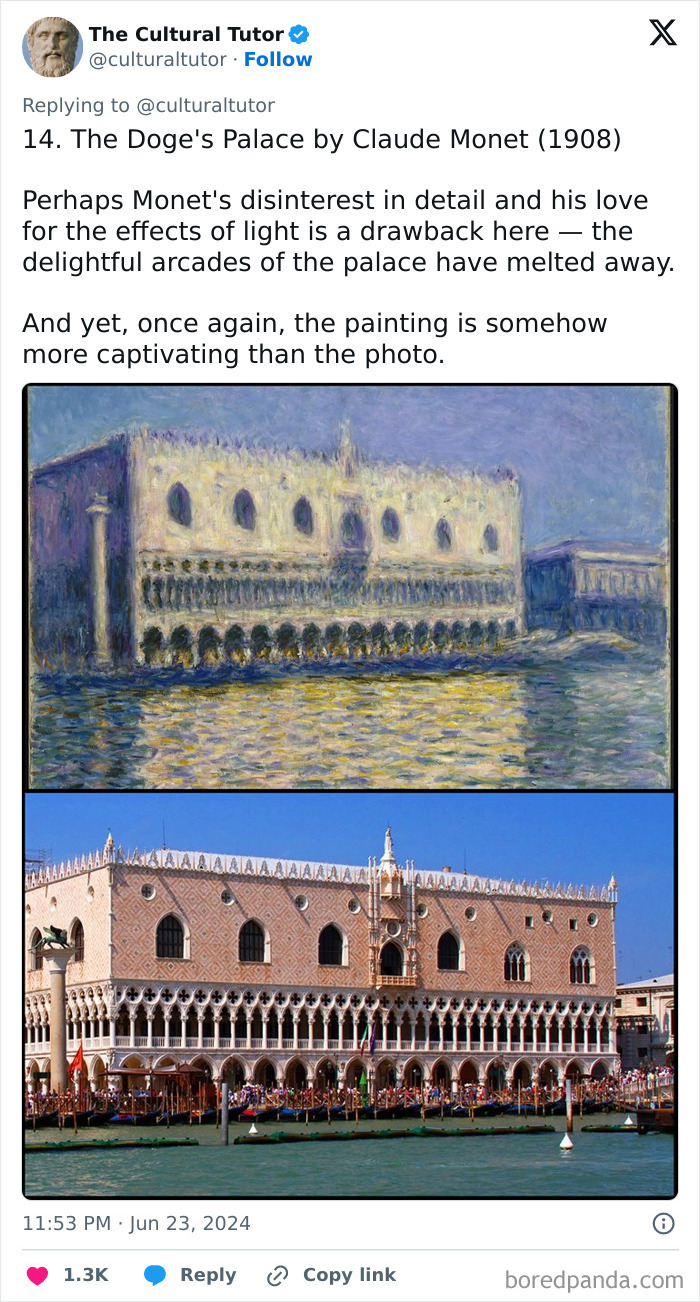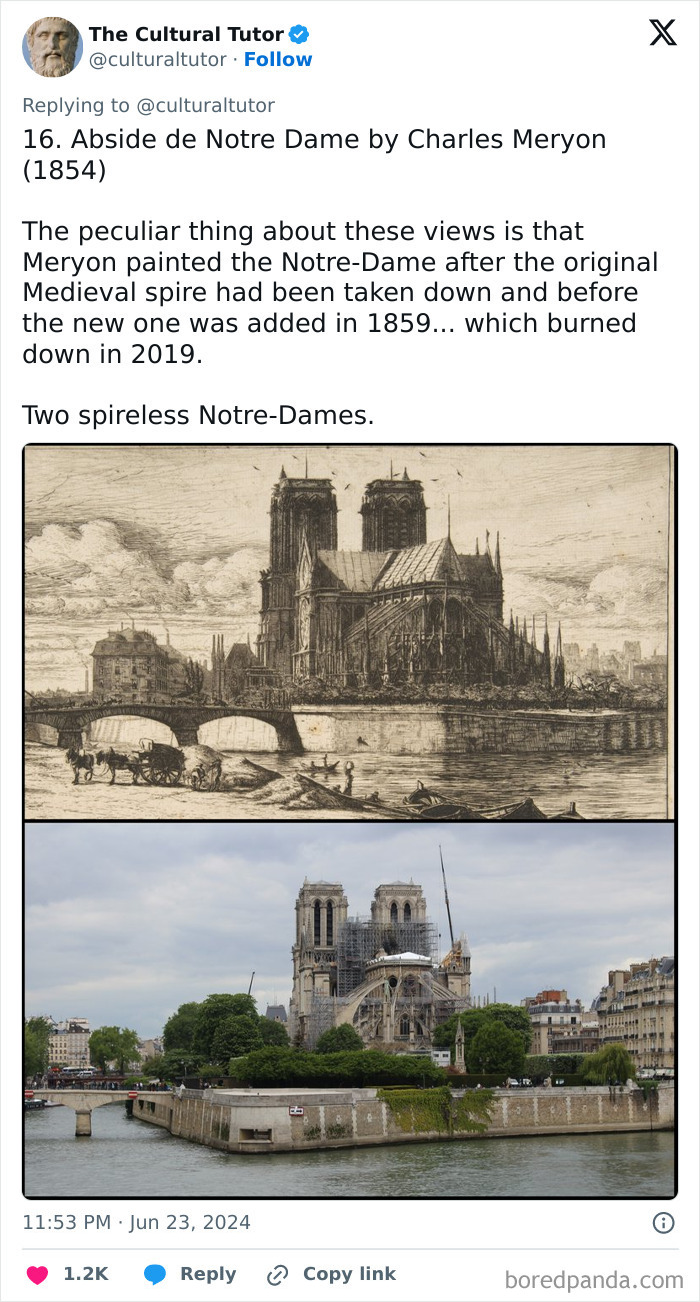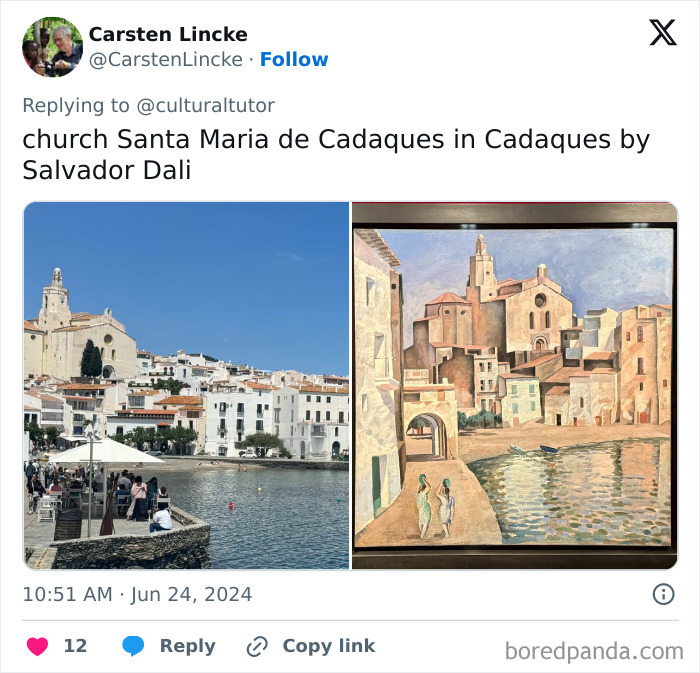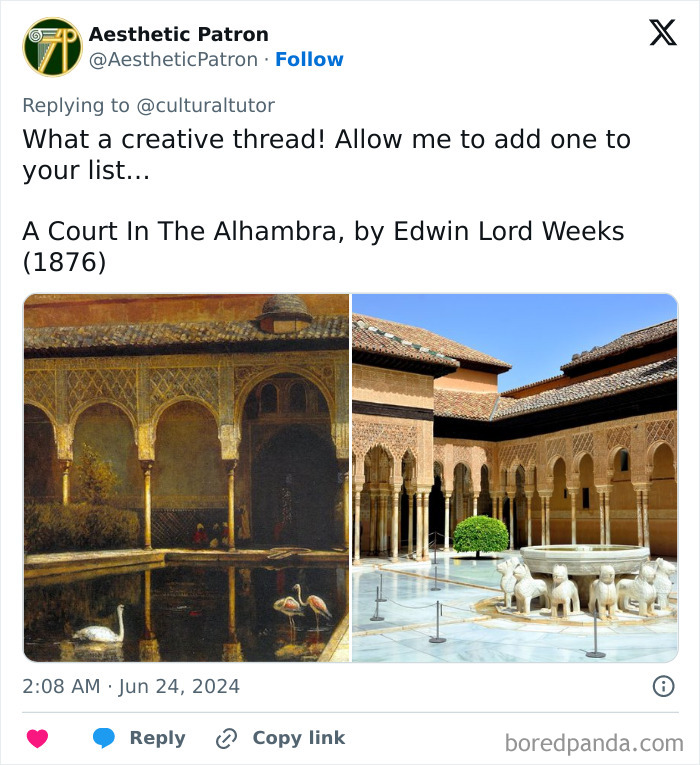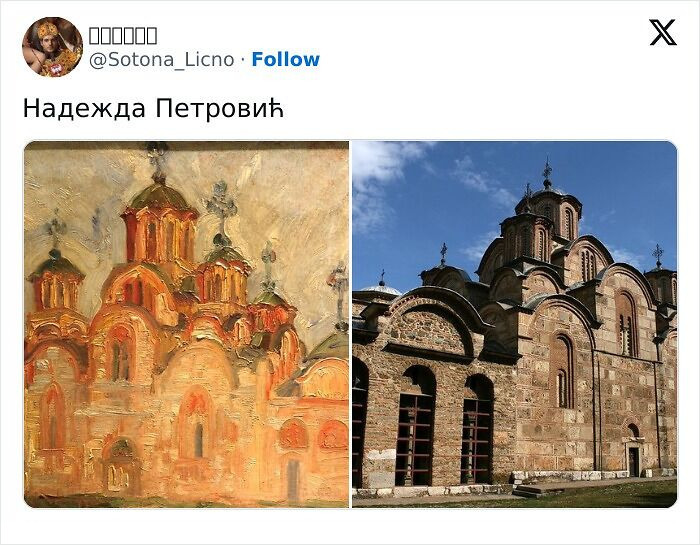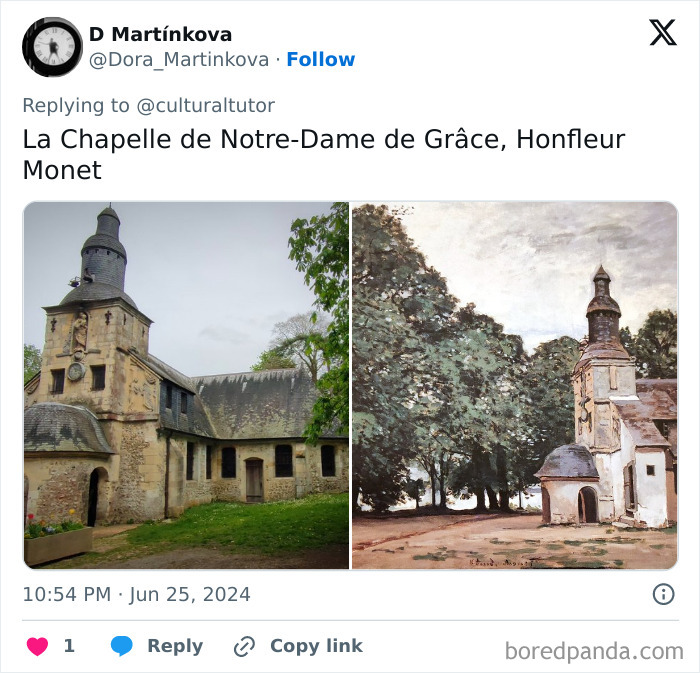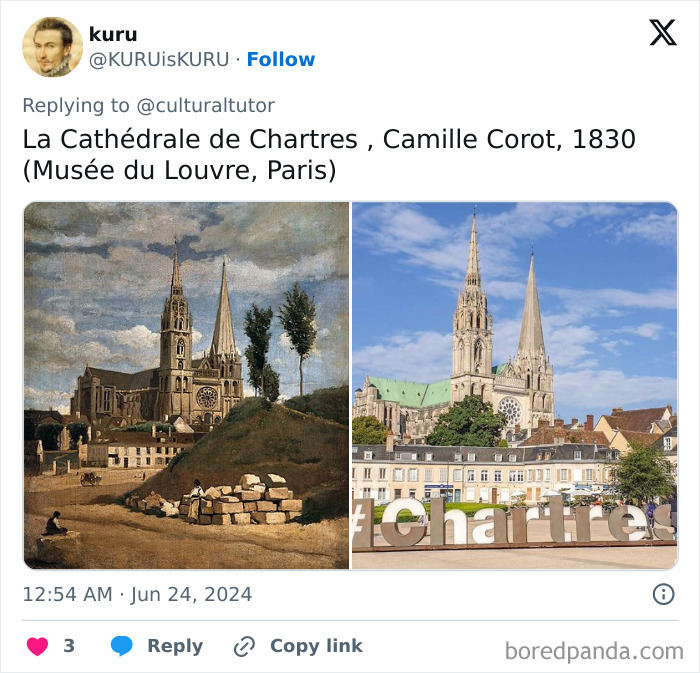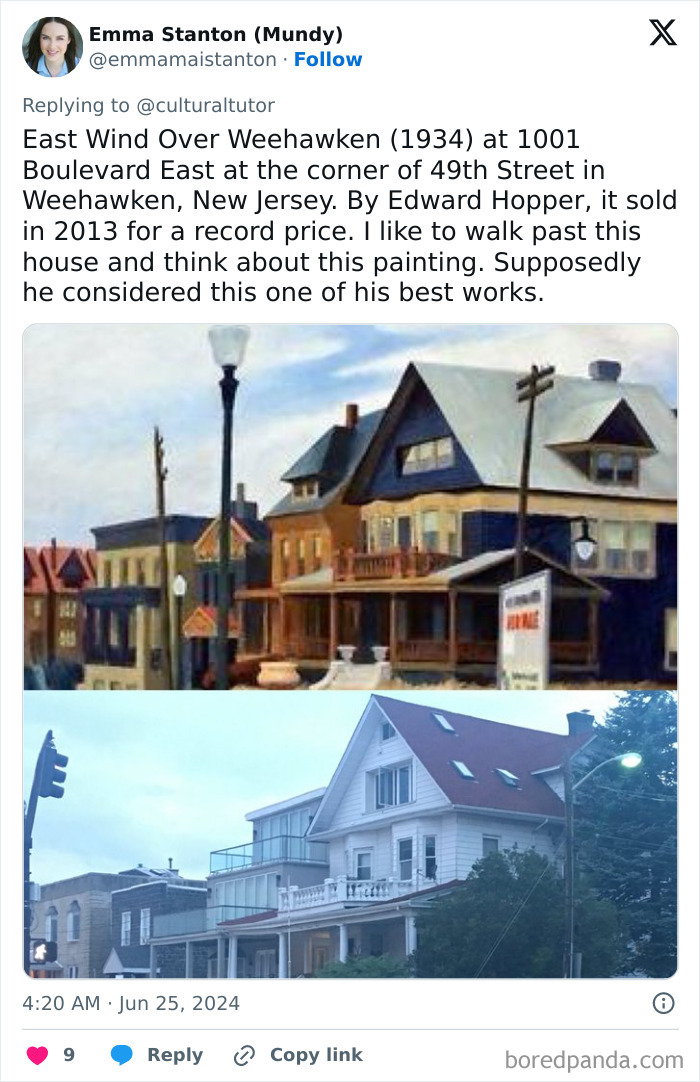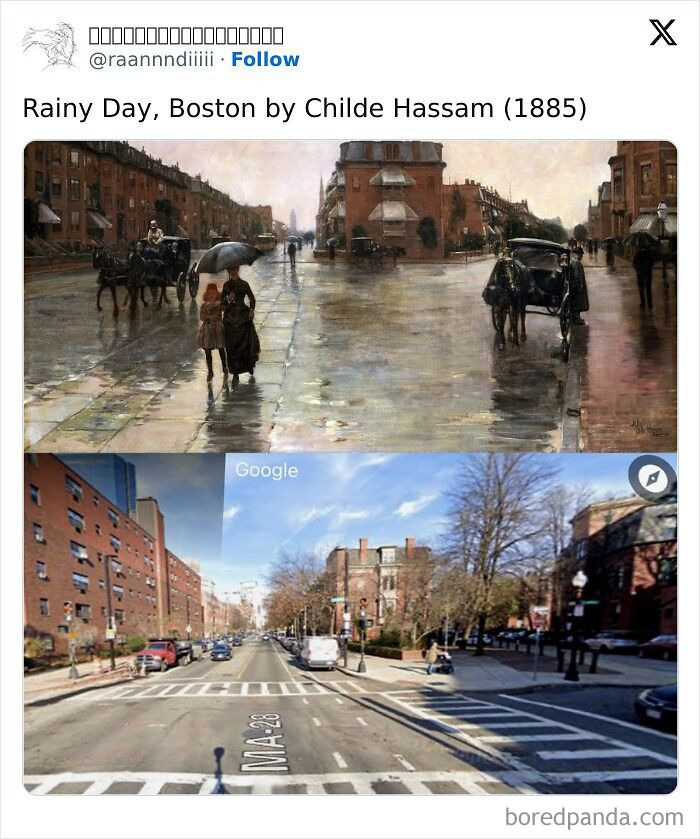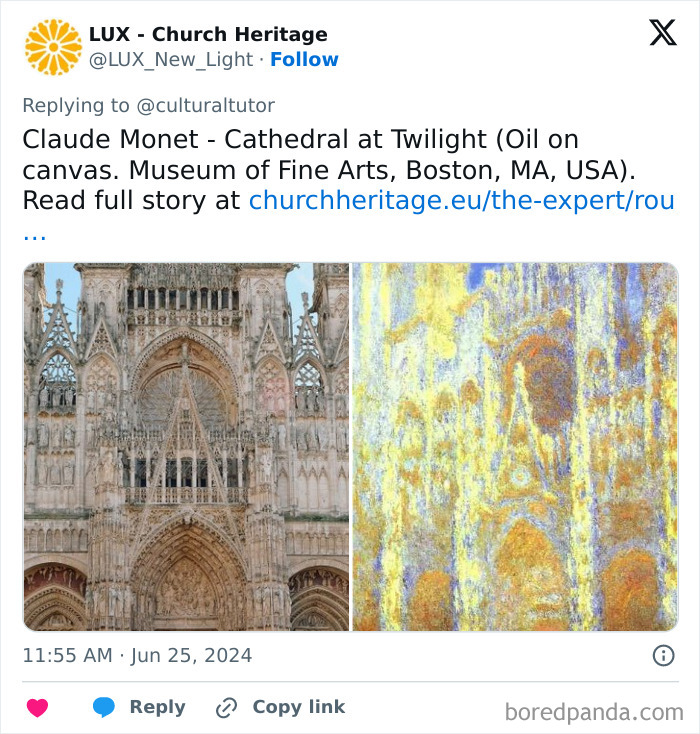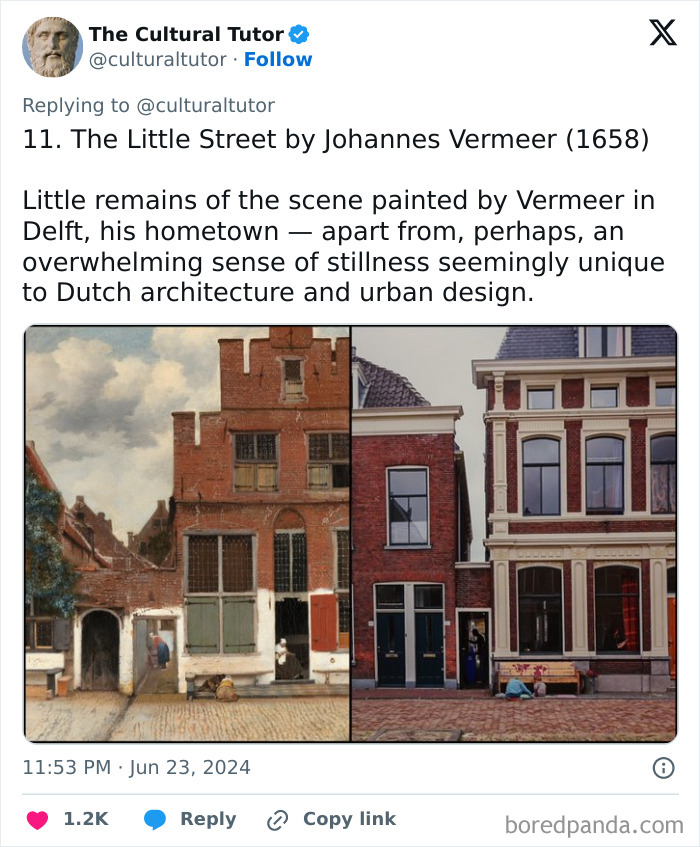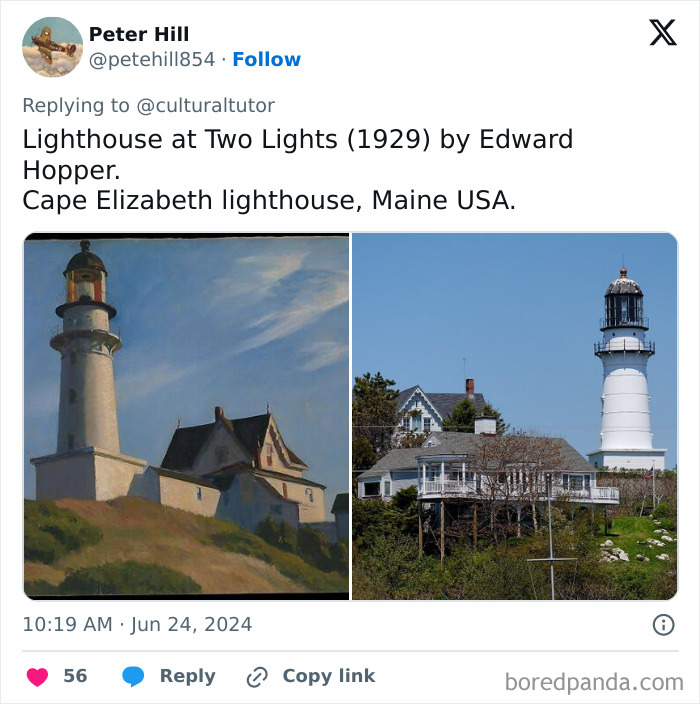Have you ever seen such a beautiful painting that you wished you could crawl inside of it? To be inside the world that Van Gogh, Cézanne, or Monet created? If it’s a real-life place in the painting, you can visit it yourself. Like Giverny, where Monet lived and painted the beauties of his garden. Perhaps, for these famous painters, it was the opposite. When they saw something in real life, they wished to transfer it to the canvas so it could remain the way they saw it forever. Immortalized in time for future generations to see. Today, we can see the real-life locations that inspired famous paintings side-by-side, thanks to accounts like The Cultural Tutor, who take it upon themselves to educate social media users, one X thread at a time. More info: X | The Cultural Tutor The company of Dr. Gachet and his circle of acquaintances, many of whom were artists, helped only temporarily. Soon, feelings of loneliness and depression returned, and, tragically, van Gogh took his own life. Interestingly, his brother, Theo, wanted to hold the funeral at the church in Auvers. But the priest said no. Van Gogh was a Protestant, and, what’s more, he had taken his own life. Both brothers, however, rest not far away from the church depicted in the painting – in the town cemetery. Then, after 966, the dukes of Normandy and French kings built a Benedictine abbey on the island. During the Middle Ages, they added monastic buildings to the ensemble, making it the center of attraction for great minds and pilgrims. Today, the government tries to preserve the exceptional landscape of Mont-Saint-Michel. They moved car parks further inland, so tourists who want to get to the mount now have to either walk or take specially devised shuttle buses. The purpose of the Al Khazneh, or the Treasury of Petra, was unknown. Some archaeologists thought it was a temple, and others claimed it was used to store documents. However, in 1996, they uncovered a crypt. Archaeologist Suleiman Farajat found the remains of at least 11 individuals. In 1944, the original site was destroyed during an Allied bombings. In the early 2000s, three Arles residents recreated the site to look exactly like van Gogh’s painting, opening Café la Nuit. Sadly, it closed in 2023, as its owners faced charges of tax evasion. Turner did 10 watercolors of Oxford between 1798 and 1804 and two oils, one of which was High Street. When considering Oxford landscapes for a series of his greatest watercolors, he rejected this one. He believed it had an “unparalleled view of technical mastery that he could not repeat.” Follow Bored Panda on Google News! Follow us on Flipboard.com/@boredpanda! Please use high-res photos without watermarks Ooops! Your image is too large, maximum file size is 8 MB.
